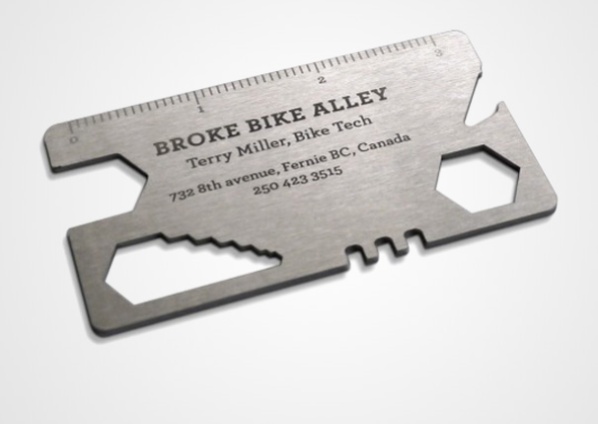Welcome back to our Tuesday segment, where we’ll be revisiting some of our most popular posts from the last few years. What’s stayed the same? And what’s changed? We’ll be updating you on the facts, and taking a new (and hopefully refreshing) angle on a few timeless classics of Self Publishing Advisor.
∗∗∗∗∗
[ Originally posted: February 28th, 2011 ]
You’re an AMAZING speaker. You know how to work the room when you’re in front of an audience. Once your presentation is over, though, you make a HUGE mistake. This one is really big, but no one told you what you were doing wrong: you hand out a business card. That sounds harmless enough, right? Not if you’re a coach or speaker.
A business card can’t portray the true value of a speaker’s knowledge in their field. Last week, I presented at Kathleen Gage’s New Horizon’s Telesummit on the topic “Your Book – Your Business Card”. If you haven’t published a book, you are doing your business (yourself) a great disservice. Think about how easy it will be to attract/retain clients and book speaking gigs if you had a published book —
- Your audience can get to know more about you and your business
- You can share your expertise with your target customer and others in your field
- Coaching is intangible. A book allows the client to touch the coach via the book.
- A well written content rich book will validate the author as an expert. Experts get to charge more.
Okay, I’m sold. I know I need to publish a book to build my business. How can I get started? If you decide to self-publish, it’s not as difficult as you think. There are some companies that offer self-publishing packages for coaches and speakers, including Outskirts Press. Packages like these are designed for busy professionals that are always on the go. If you think self-publishing is right for you be sure to choose a self-publisher that can accommodate your marketing and distribution goals. Truthfully, creating the actual book is the easiest part. Make sure that you are maintaining the rights to your material and that you have control over your retail piece and your trade discount.
Some authors don’t want to pay to publish their books. In cases like these, you may consider going the “traditional” publishing route. Remember that you will be selling your rights to the book, but you will still be responsible for promoting your book after the process is complete. Also, publishing your book this way could take months or even years (if it’s accepted).
It is important that you weigh the pros and cons of each option and decide which one works for you.
– by Wendy Stetina
Wendy was right–the best advertisement for an author is a book, and the best means of marketing a new book is to start working on the next one. This isn’t to say you won’t have valuable things to add to the conversation about self-publishing if you yourself haven’t finished publishing your book, but as someone interested in indie publishing you probably know better than most the true importance of timing. It’s worth waiting to give that big presentation until after you have some hard copies of your book in hand, even though waiting is agonizing and fun for no one.
We’re talking about the power of tangibles. There’s a lot you can do with the force of your personality alone in terms of capturing an audience and convincing its various members of your sincerity and authenticity … but there will always be at least one person who will lobby a comment during the Q&A session asking how and where to purchase your book. If you don’t have an answer for that person, your credibility as a presenter tanks. It may not tank a lot, but any tanking is a bad thing. On the other hand, if your book is for sale digitally and you can confidently state its retailers, you’ll earn credibility. The more at home you are with the particulars of your own publishing experience–the date on which your book was or will be published, the retailers where it can be purchased, and your personal website address and social media account handles where your audiences can seek out more information–the more your image as a worthwhile presenter is built and the more your listeners will see you as an author and not just as any old speaker.
When it comes to speaking about self-publishing, there’s real currency in sharing your personal experience. This is why I’m 100% an advocate of signing yourself up to be a presenter … and just a tad cautious about signing up too soon. Make it worth your while. And if you’re absolutely going to be steam-rolled into a presentation before your book is out in print, make your business card an access point to the publication process. By which I mean: make sure it not only includes your publication date and website information, but make the giving of it an actual incentive to buy. Incentivization is king! You might offer a 15% discount to everyone who can provide proof of business card acquisition at online checkout–perhaps each business card is printed with a discount code–or you might use it as the first clue in a series that will lead your presentation listeners on an Easter egg hunt around town to friendly businesses that are promoting your work. You can get really creative at this point–my suggestions barely scratch the surface!
Just … don’t let your business card be boring.
Thanks for reading. If you have any other ideas, I’d love to hear them. Drop me a line in the comments section below and I’ll respond as quickly as I can. ♠













